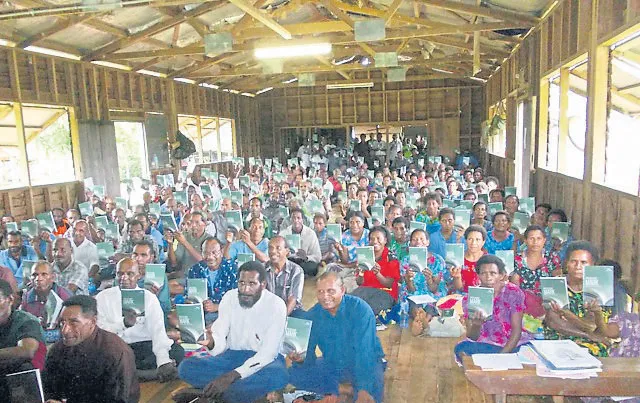‘Does God’s Spirit tell us who caused a person to die?’ the pastor asked. Another wondered: ‘if we fast and pray will God show us why a person got sick?’ Such questions dominated the Q&A session among a group of evangelical pastors in PNG in May and illustrate the confusion in the churches.
Before Christianity came to the Western Province of PNG in the 1950s, families and tribes were often in bitter disputes, blaming each other for causing death and disease, taking revenge and eating their dead enemies. Though the gospel radically changed things, there is huge slip in the churches back into a culture of blame and revenge.
Christianised animism
After someone dies, a family will gather to decide who is to blame. Just before I arrived in PNG, at the end of April, a senior pastor had taken part in such a discussion with his family following the passing of his elderly believing mother – though he later repented. To add to the confusion much of the animistic thinking has been ‘Christianised’. ‘Prayer warriors’ will go into the bush to fast and pray and, for a fee, tell families who the Holy Spirit says is guilty of causing a person to be sick or to die.





